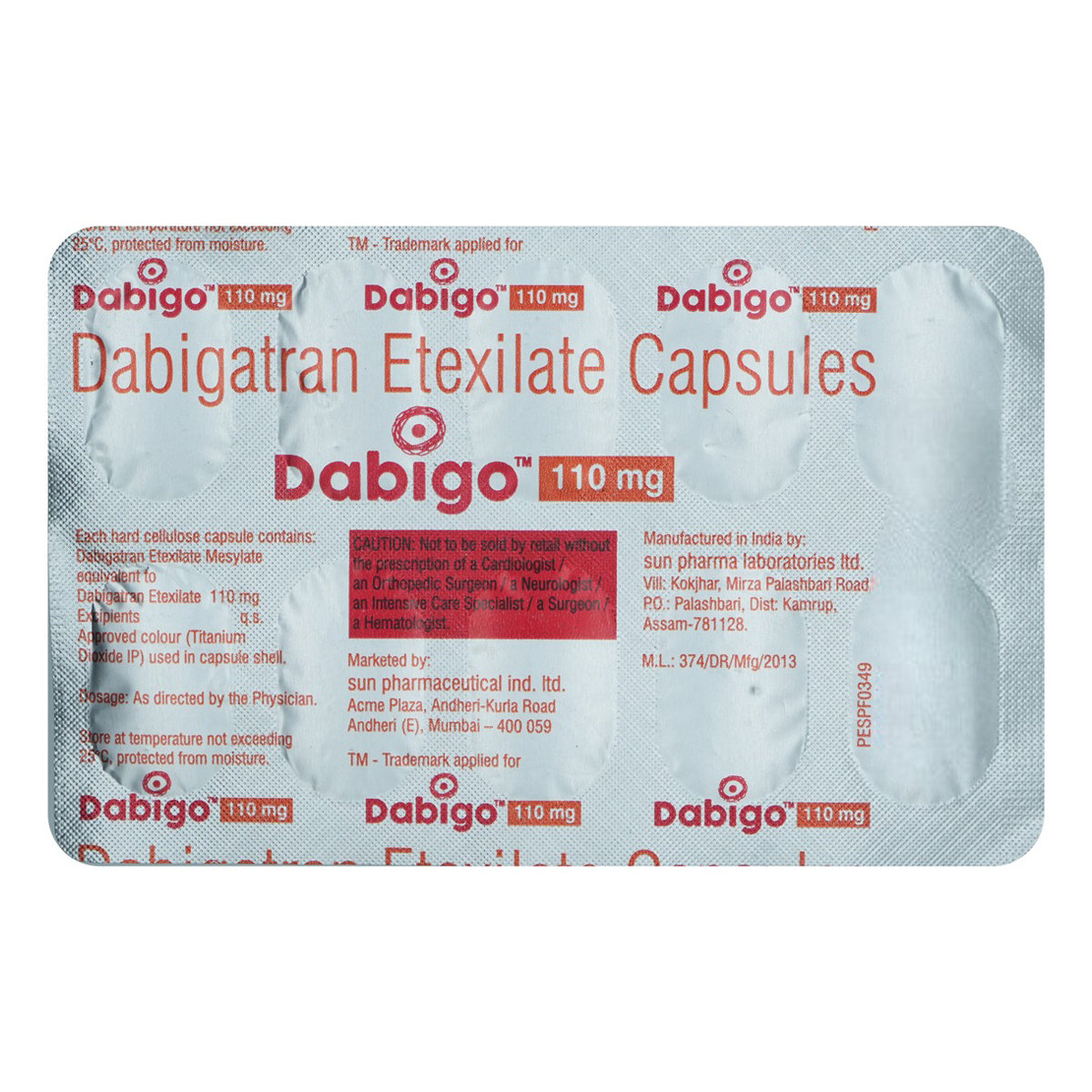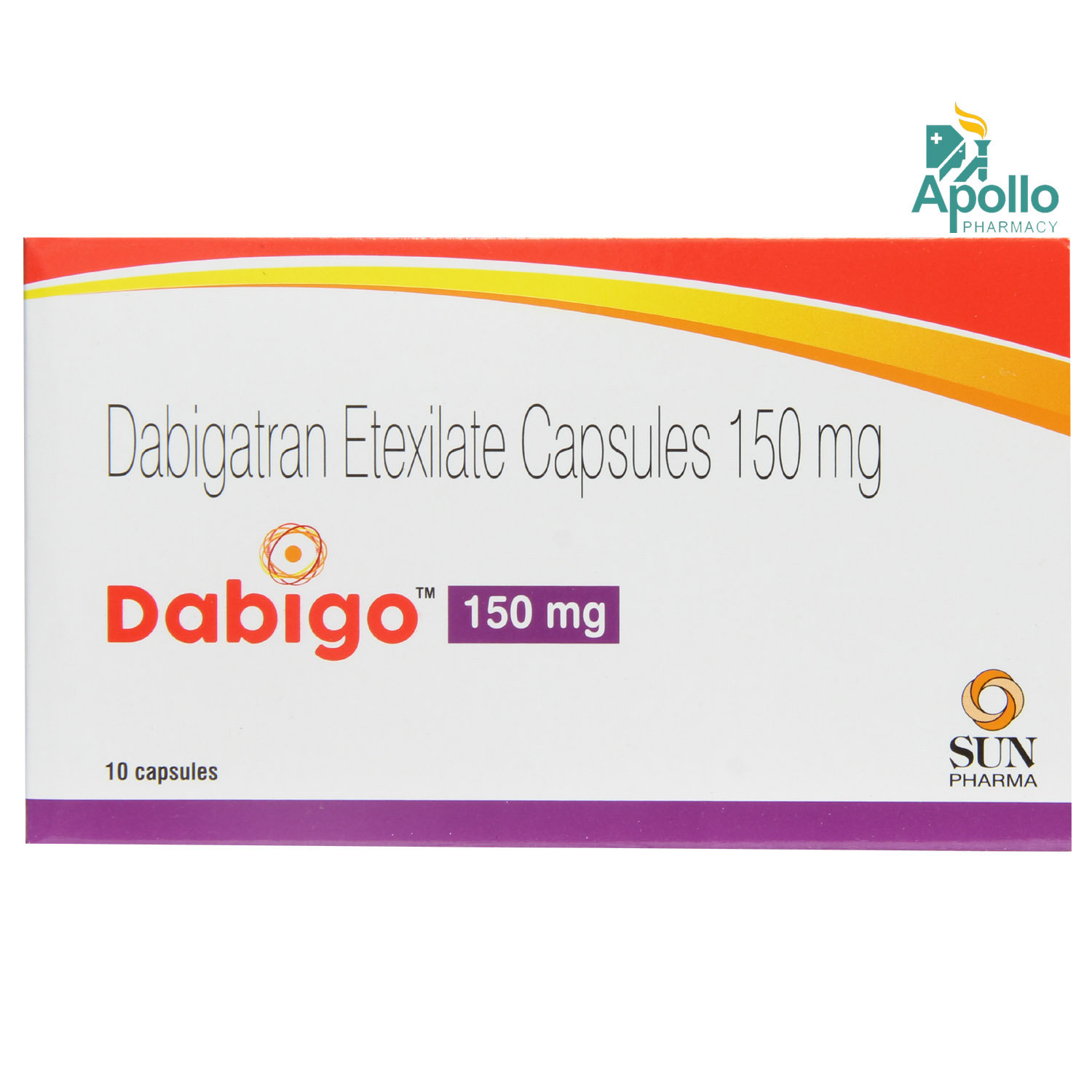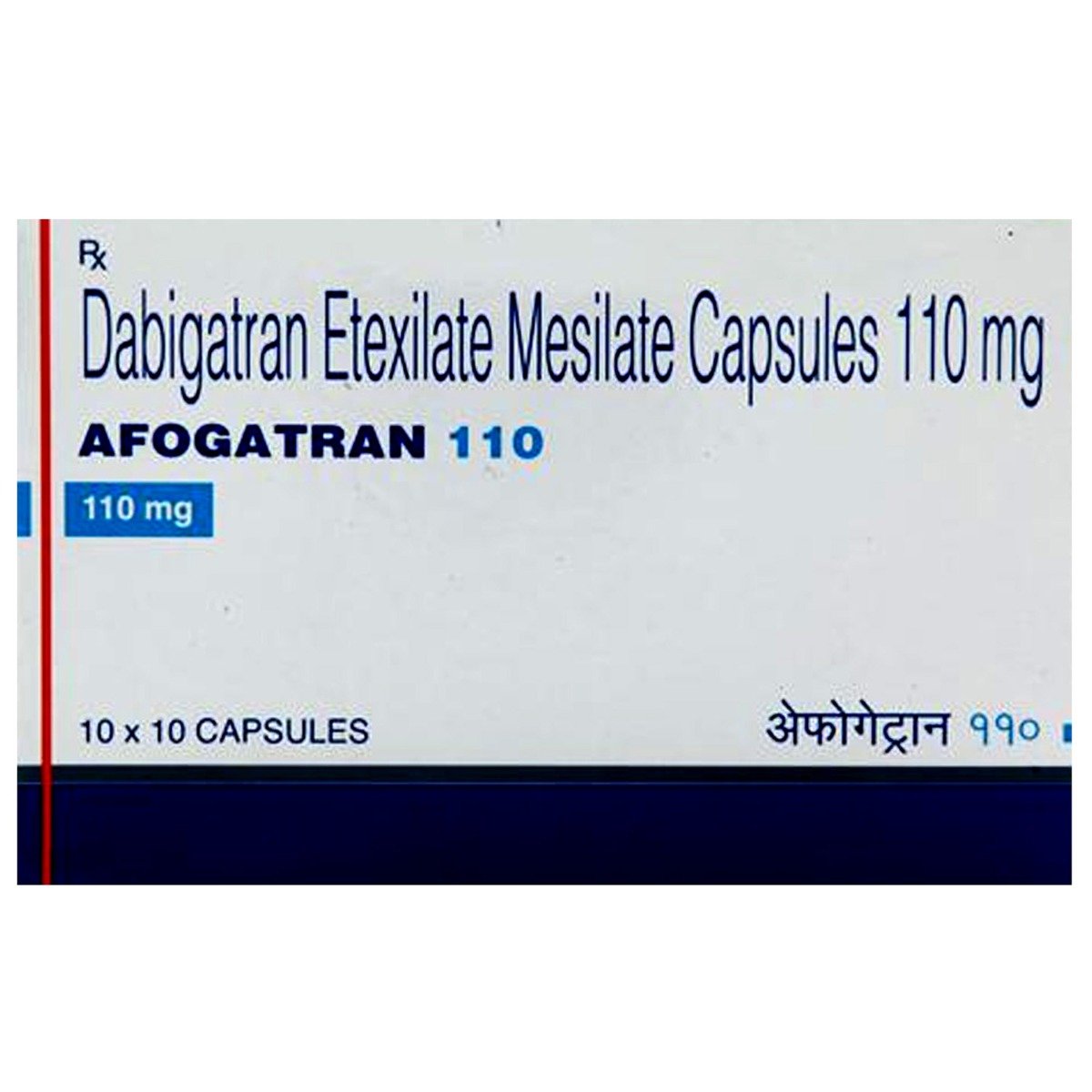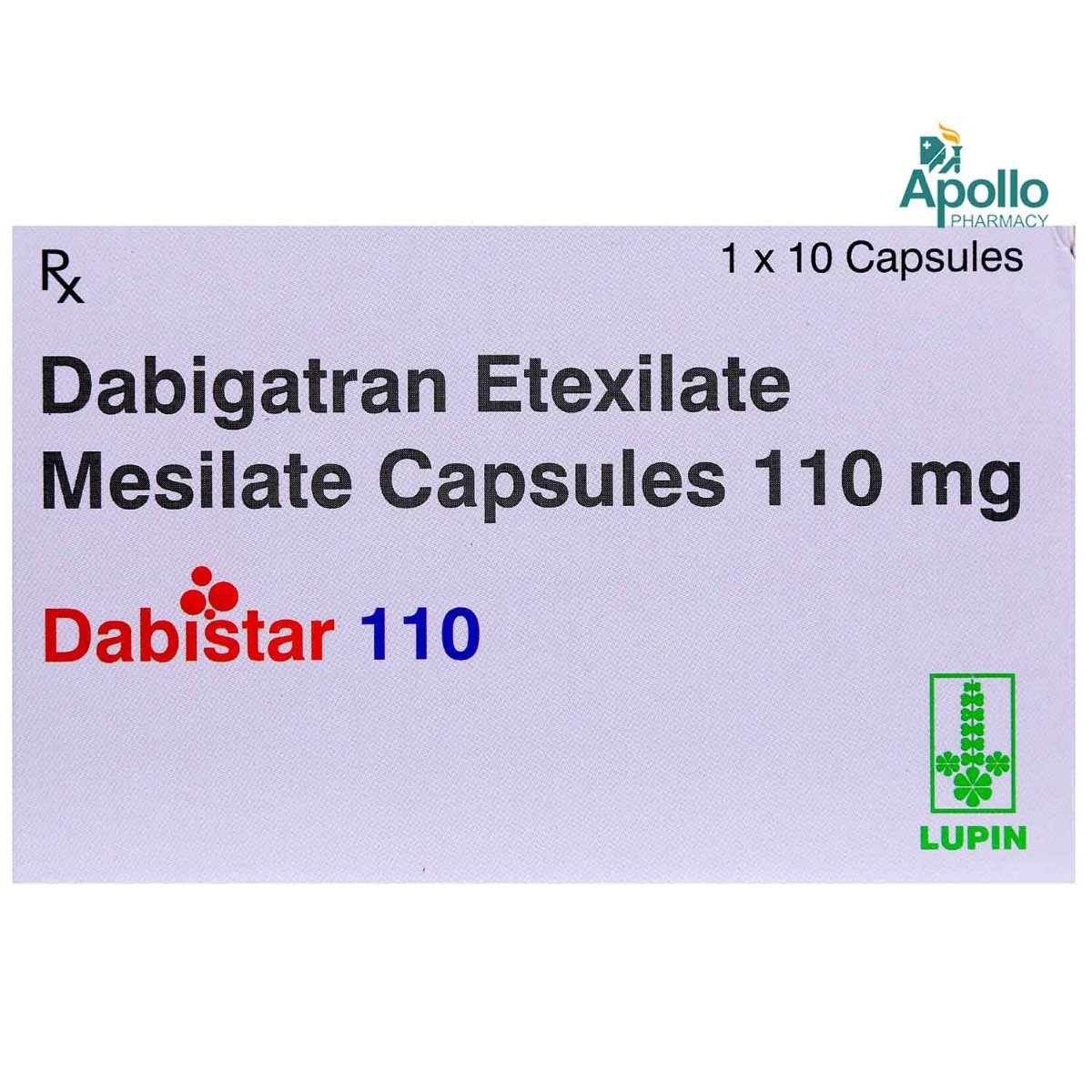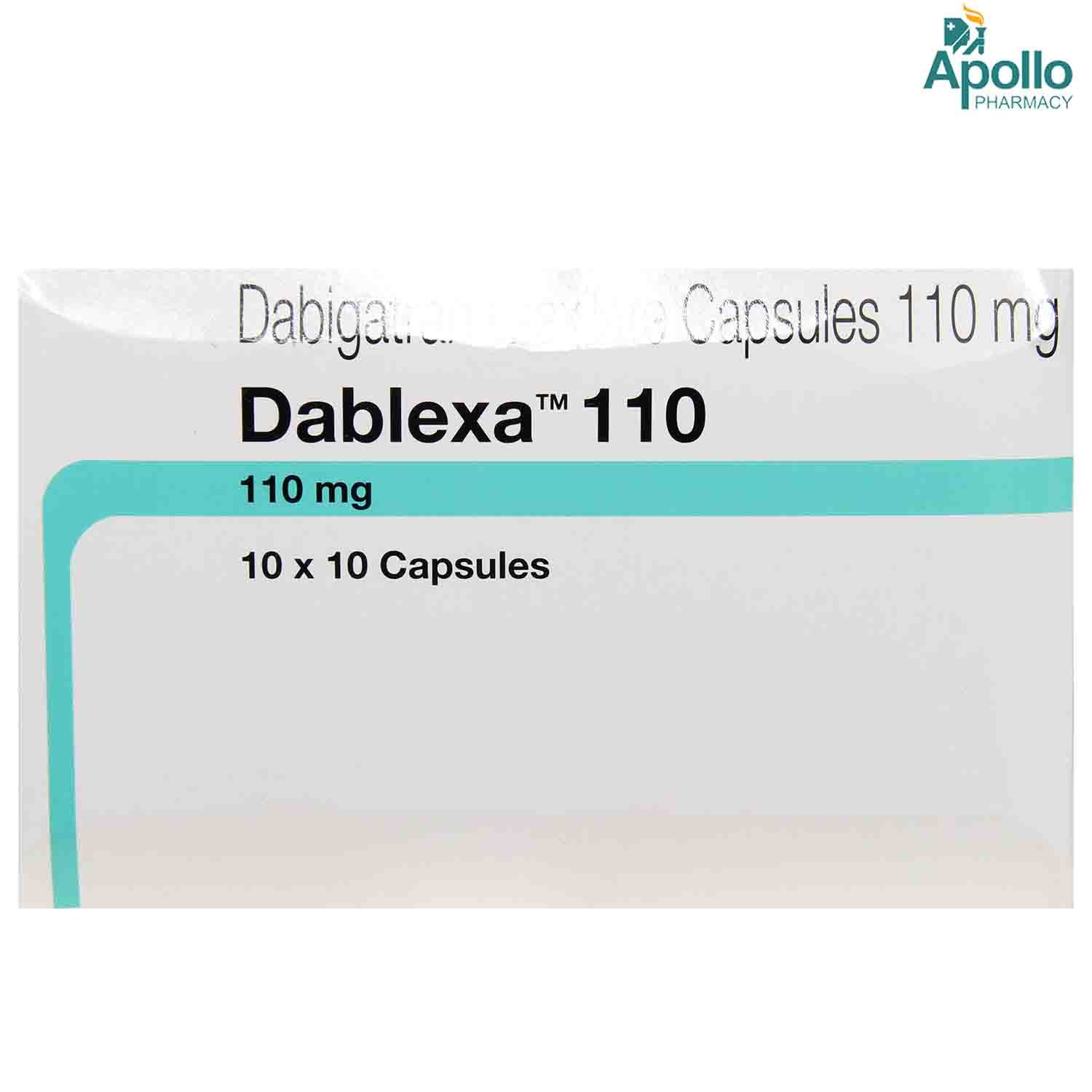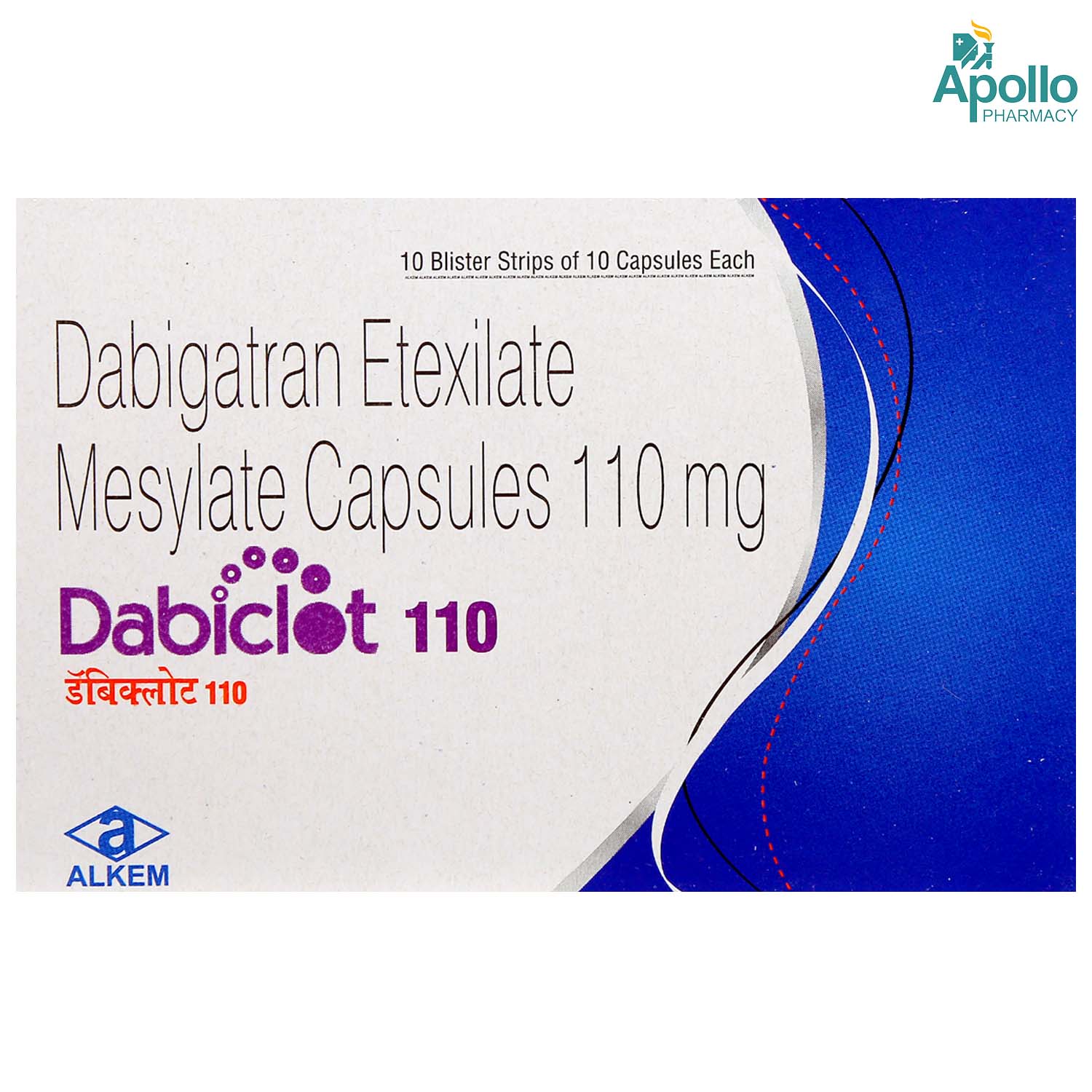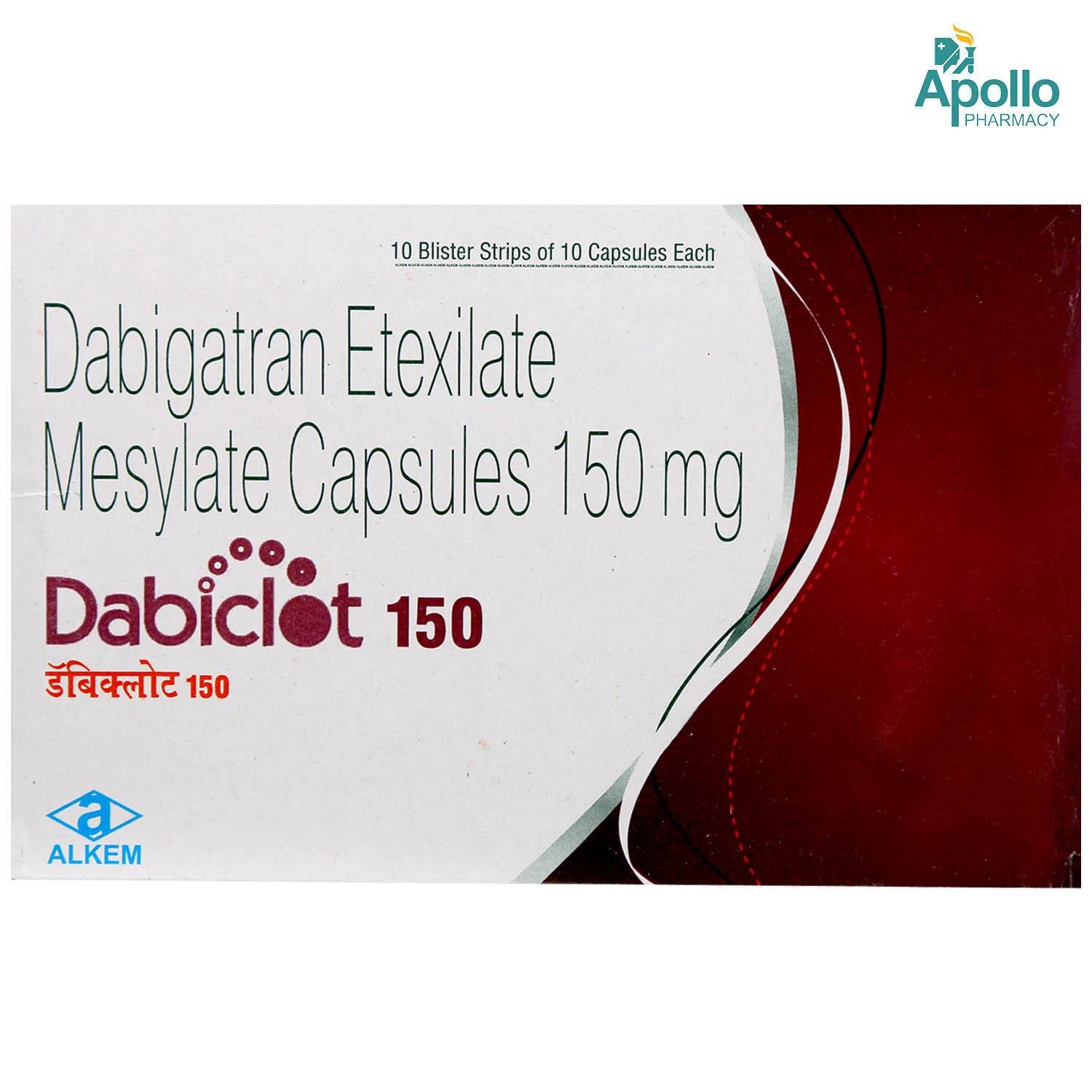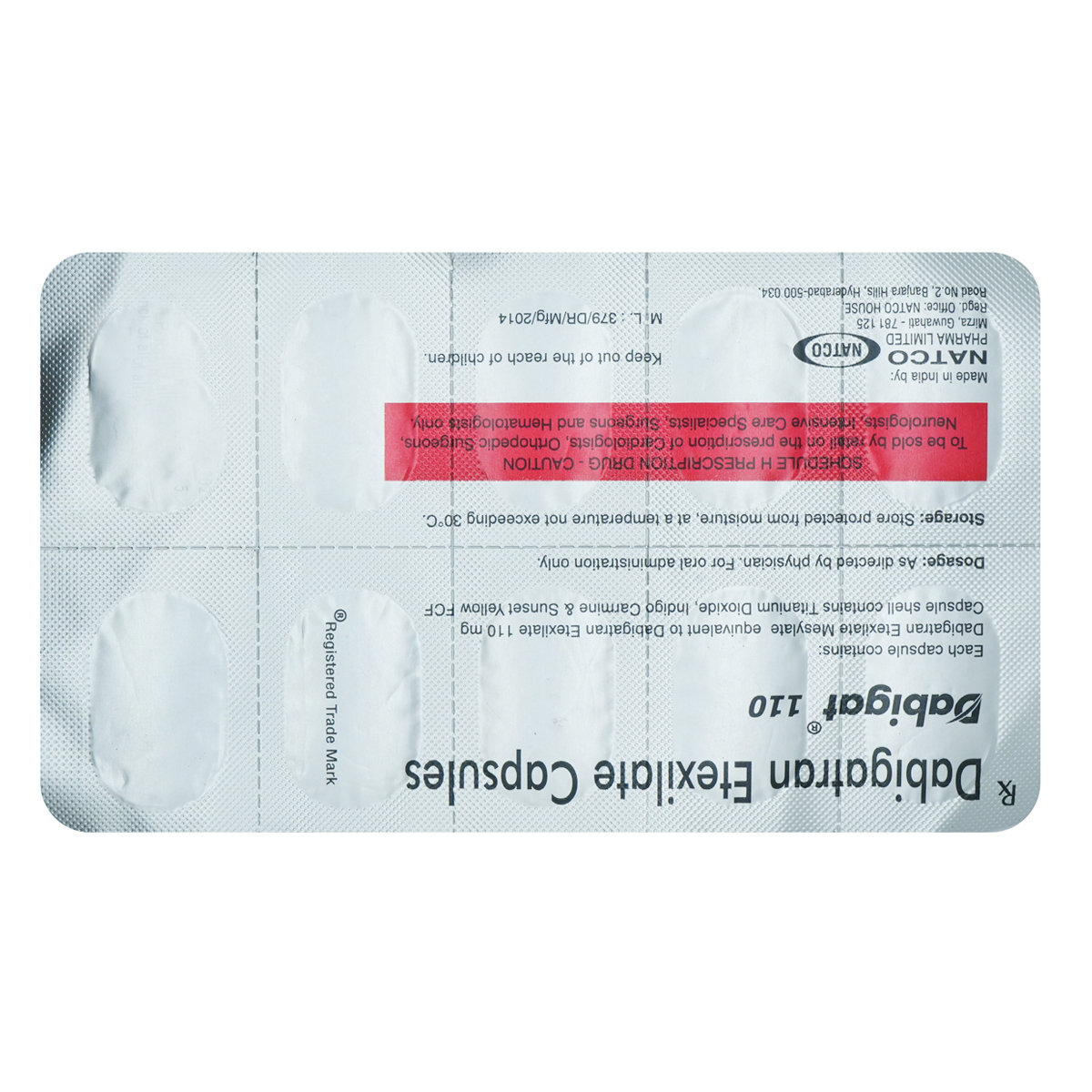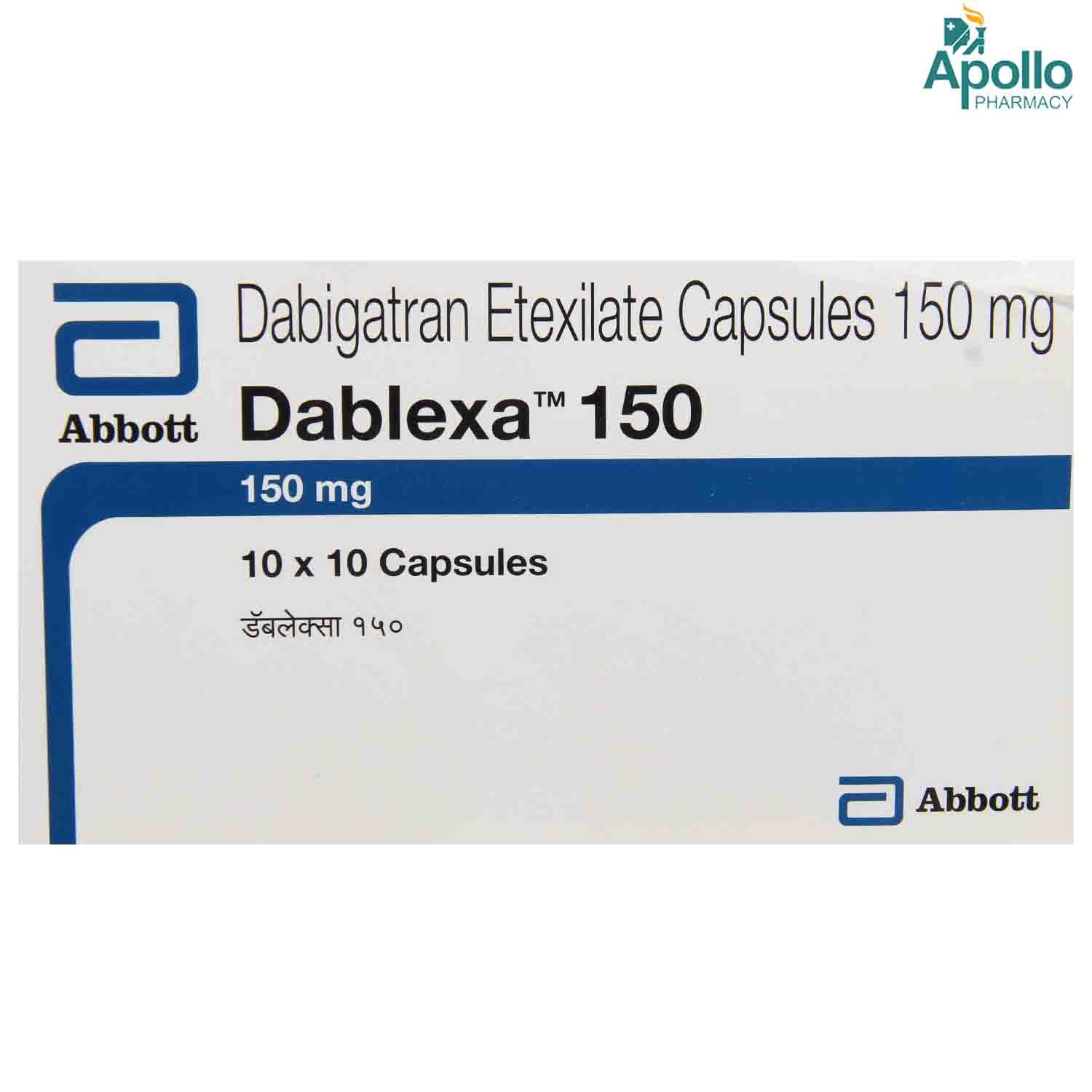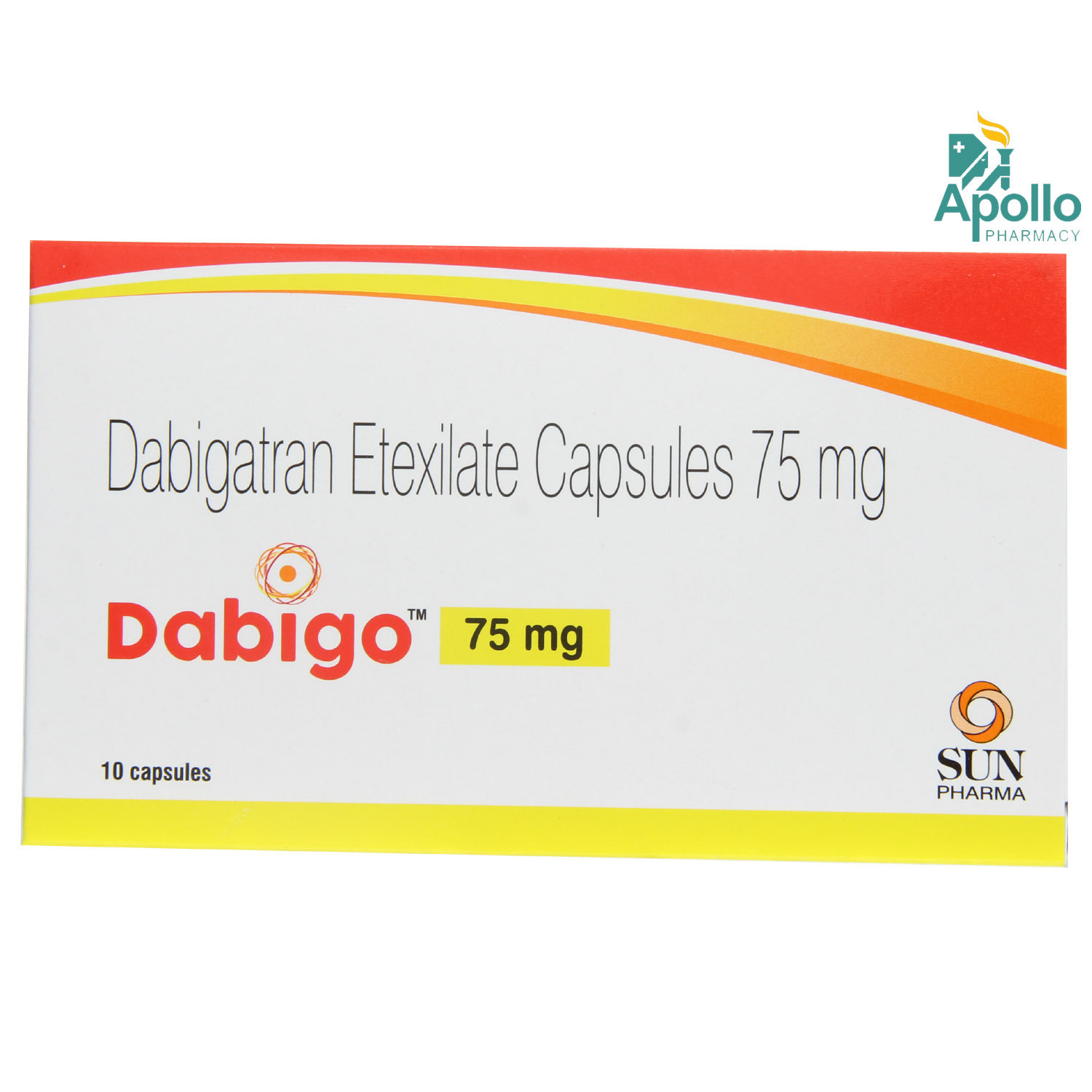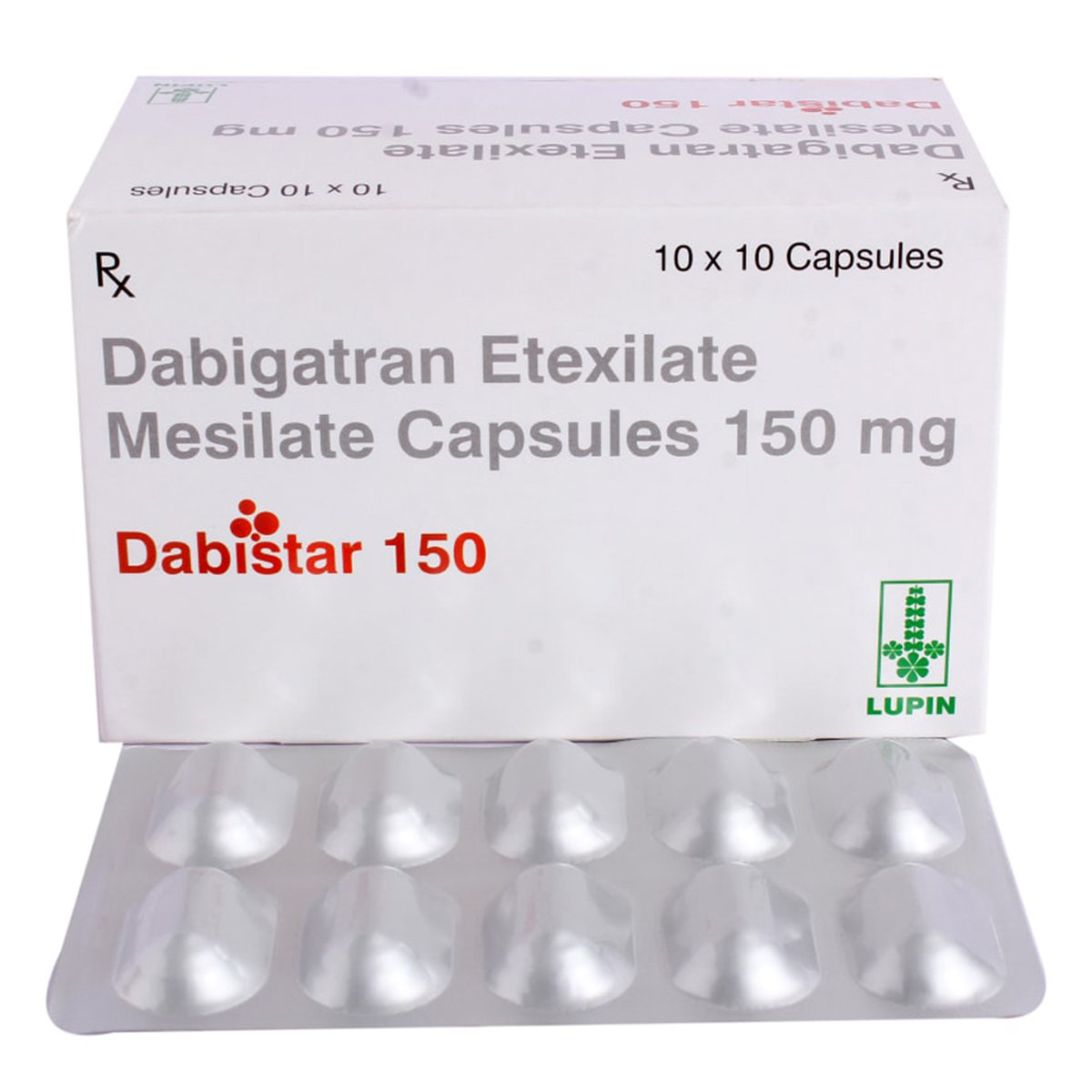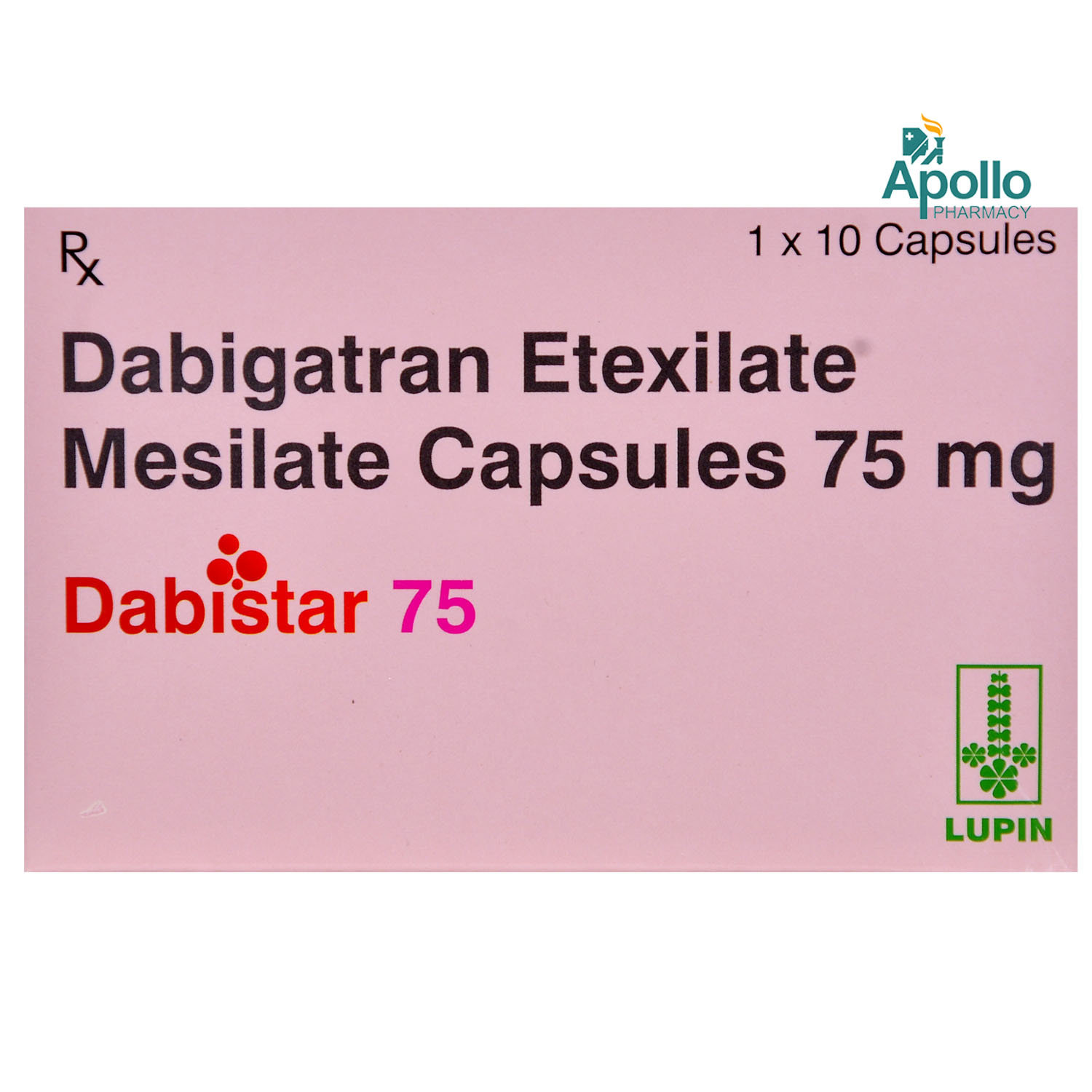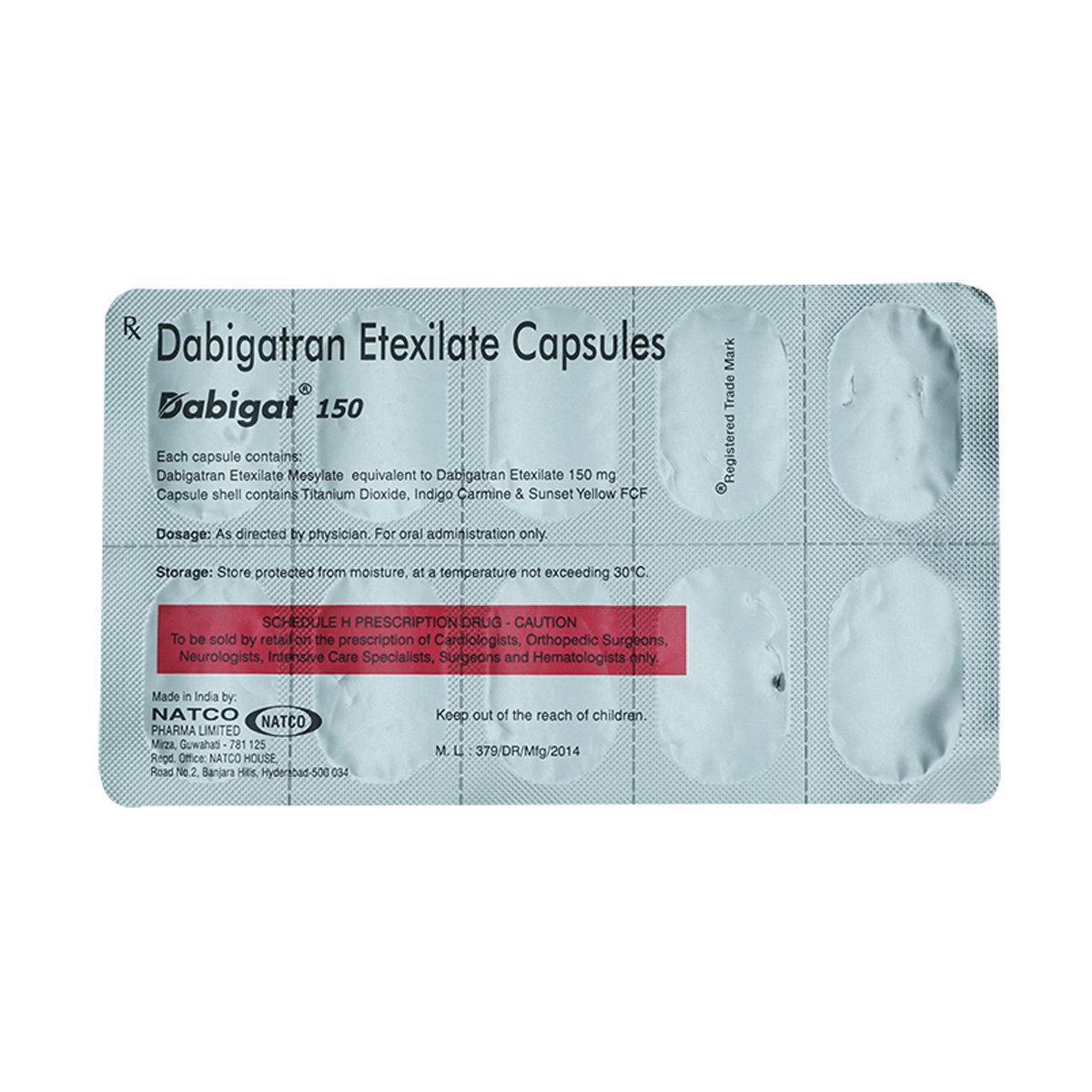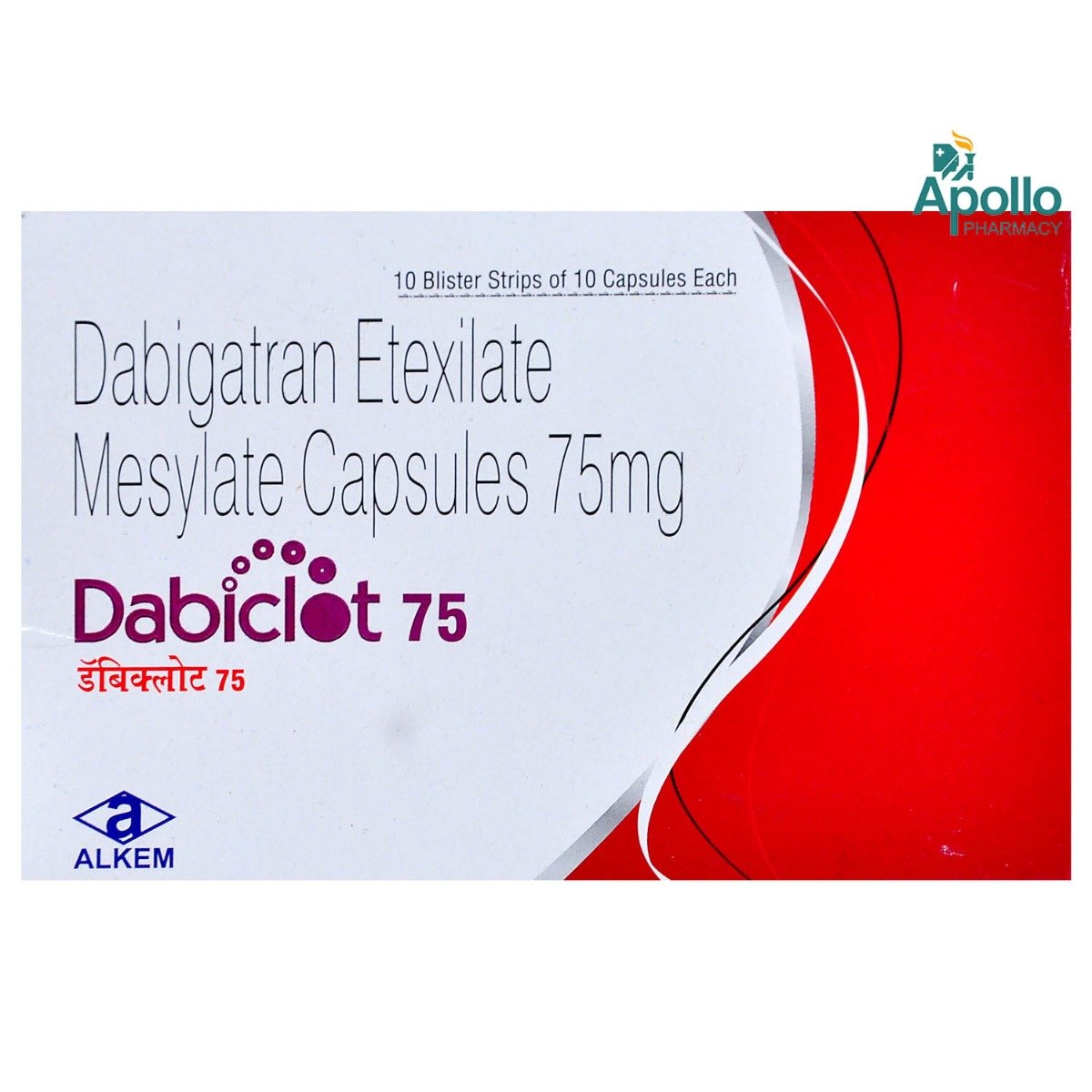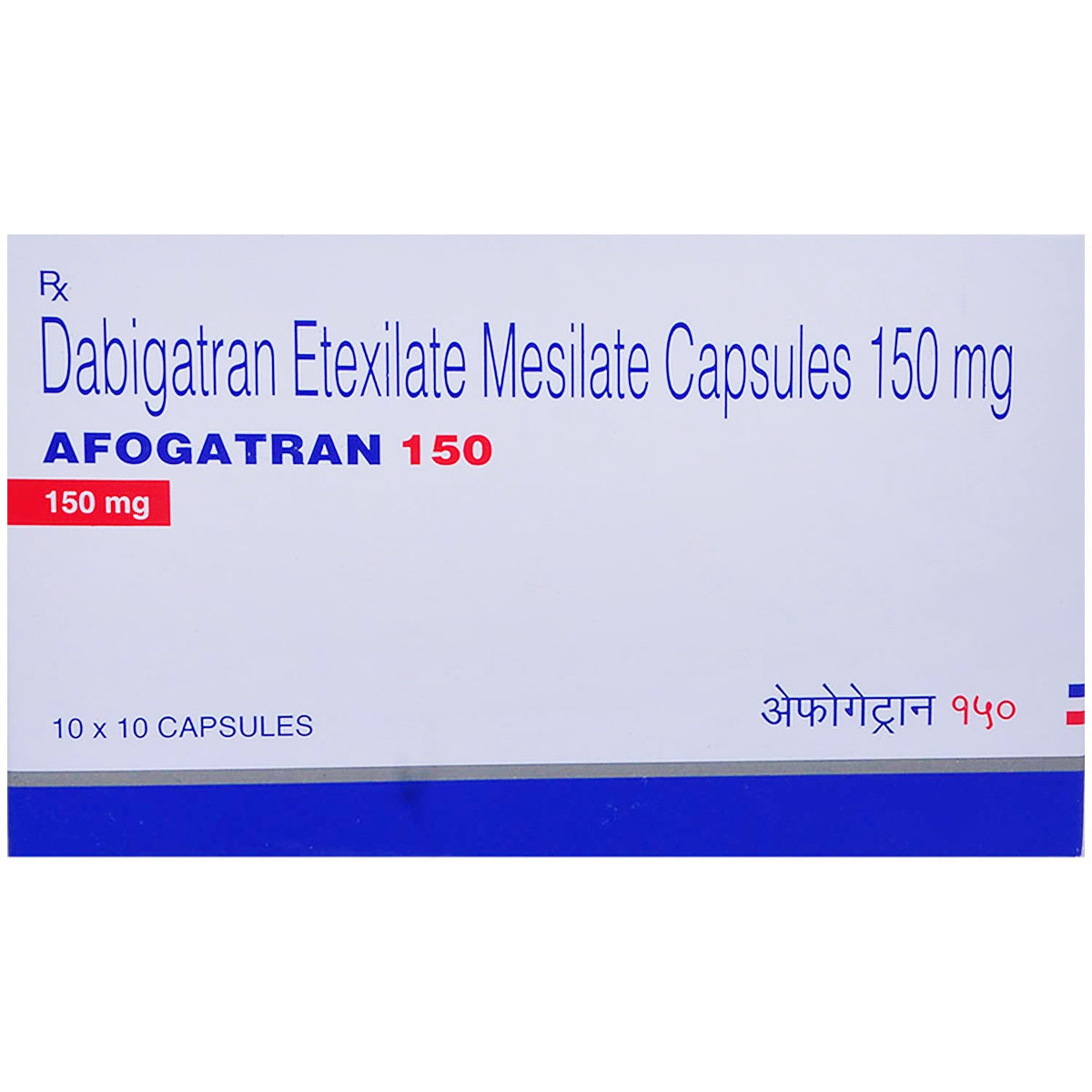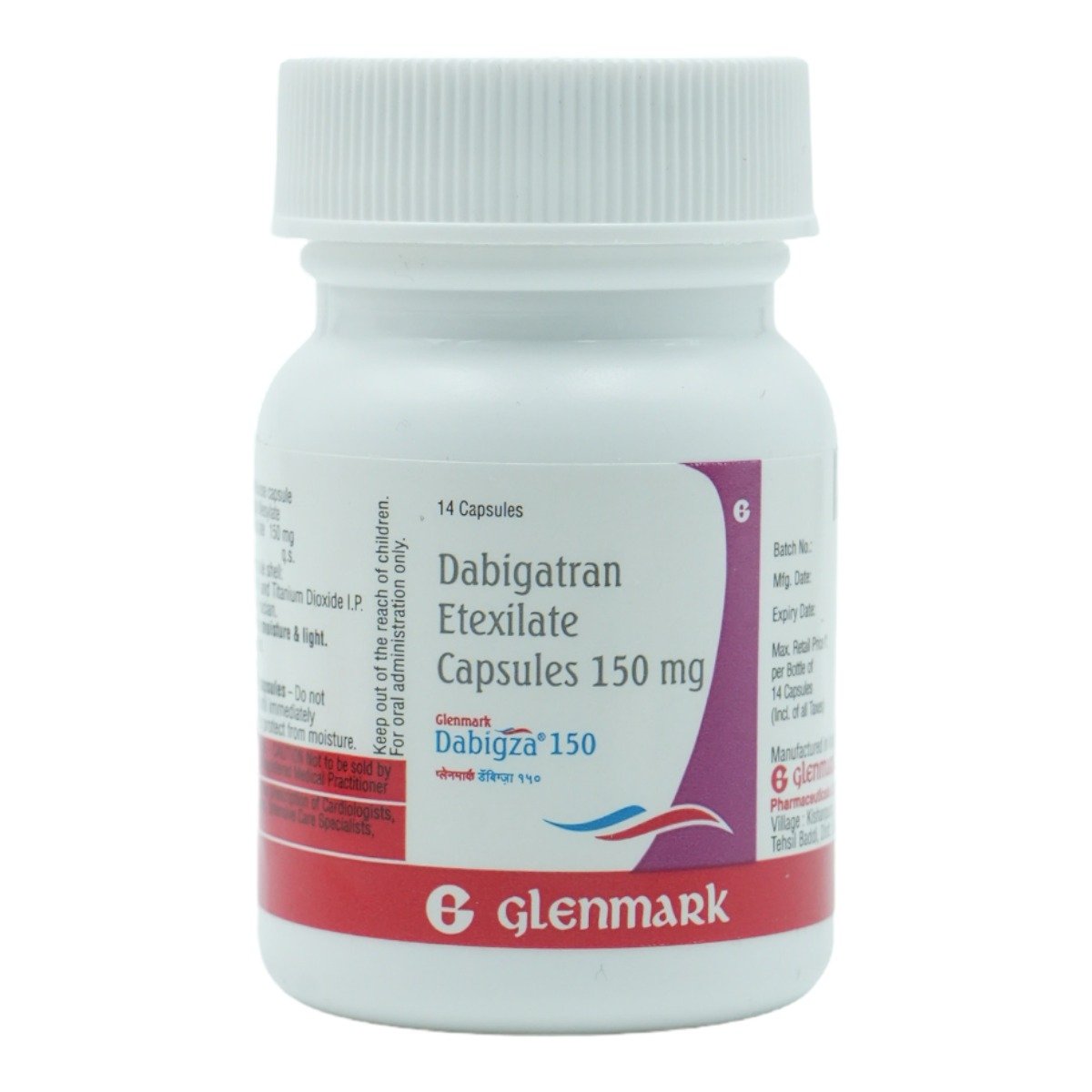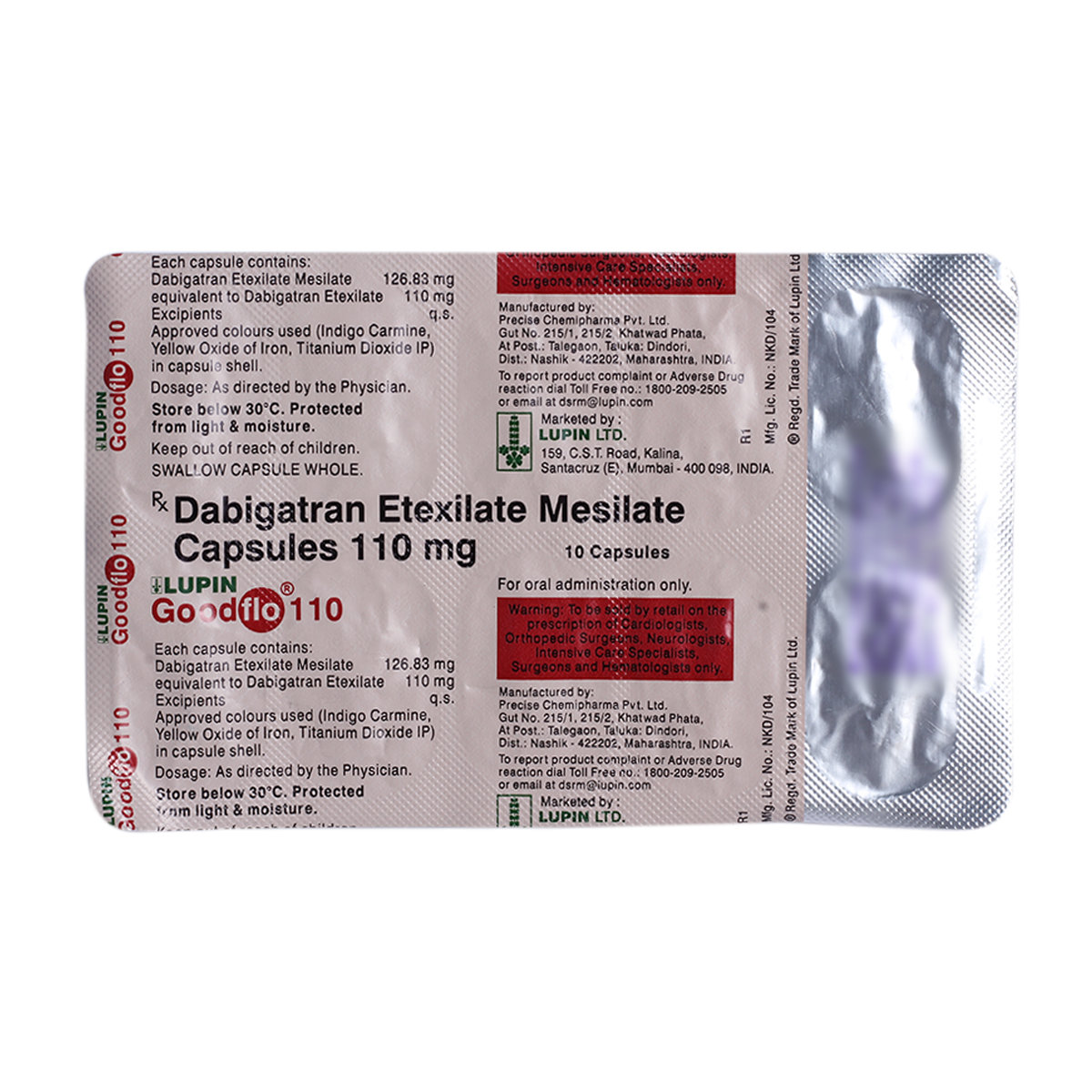Dabigatran
About Dabigatran
Dabigatran is used to prevent blood clot formation and prevent the risk of stroke and heart attack in patients with atrial fibrillation (irregular heart rhythm). It is also used to prevent deep vein thrombosis (blood clots in the leg veins) and pulmonary embolism (blood clots in the lung).
Dabigatran contains ‘Dabigatran’, which works by inhibiting the production of clotting factor Xa called thrombin. This prevents the conversion of fibrinogen (soluble protein) to fibrin (insoluble protein), thereby preventing blood clot formation.
In some cases, Dabigatran may cause certain common side effects such as bleeding, anaemia, nausea, stomach pain, and indigestion. Most of these side effects do not require medical attention. However, talk to your doctor if you experience these side effects persistently.
If you are known to be allergic to Dabigatran or any other medicines, please tell your doctor. If you are pregnant or breastfeeding, it is advised to consult a doctor before using Dabigatran. If you have a stomach ulcer, kidney or liver problems, high blood pressure, or a history of bleeding, inform your doctor before taking Dabigatran.
Uses of Dabigatran
Medicinal Benefits
- Dabigatran is primarily used to prevent and treat the risk of stroke and heart attack by reducing blood clot formation.
- Dabigatran prevents clot formation in the deep vein thrombosis (veins of the legs), pulmonary embolism (lungs), stroke (brain), and heart in patients with atrial fibrillation (irregular heart rhythm).
- It also reduces the risk of getting clots in people who have undergone knee or hip replacement surgeries.
- Dabigatran works by stopping the action of the clotting factor (thrombin). This prevents the conversion of fibrinogen (soluble protein) to fibrin (insoluble protein), thereby preventing blood clots.
- It helps your blood flow more easily, lowering the chance of dangerous clots forming.
Directions for Use
- Dabigatran can be taken with or without food as advised by your doctor.
- Follow your doctor's instructions on the dosage and timing of this medication to ensure safety.
- Swallow Dabigatran as a whole with a glass of water.
- Do not chew, crush, or break it.
Storage
Side Effects of Dabigatran
- Stomach pain
- Indigestion
- Bleeding
- Anaemia
- Nausea
- Diarrhoea
Medicines Containing this Salt
View AllDrug Warnings
- If you are known to be allergic to Dabigatran or any other medicines, please tell your doctor.
- You should inform the doctor that you are taking Dabigatran before any surgery is scheduled.
- Dabigatran can cause a serious blood clot around your spinal cord if you undergo a spinal tap or receive spinal anaesthesia (epidural).
- Do not stop taking Dabigatran of your own. Stopping a sudden intake of Dabigatran may worsen your condition and increase your risk of cardiovascular death, heart attack, and stroke. Hence, you should consult a doctor before stopping the dose of Dabigatran.
- If you have a stomach ulcer, kidney or liver problems, high blood pressure, or bleeding problems, inform your doctor before taking Dabigatran.
- If you are pregnant or breastfeeding, it is advised to consult a doctor before using Dabigatran.
- Safety and effectiveness of Dabigatran have not been established, so its use should be avoided in pediatric patients or children less than 18 years of age.
- Avoid consumption of alcohol while taking Dabigatran as it may increase the risk of stomach bleeding.
Drug Interactions
Drug-Drug Interactions: Dabigatran may interact with medicines to reduce blood clotting (warfarin, phenprocoumon, acenocoumarol, heparin, clopidogrel, prasugrel, ticagrelor, rivaroxaban), medicines to treat abnormal heartbeats (amiodarone, dronedarone, quinidine, verapamil), medicines to treat fungal infections (ketoconazole, itraconazole), medicines to prevent organ rejection after transplantation (tacrolimus, cyclosporine) antiviral or HIV medicines (lopinavir, ritonavir, glecaprevir, pibrentasvir), antibiotics (rifampicin or clarithromycin), pain reliever (aspirin, ibuprofen, diclofenac), antiepileptic drugs (carbamazepine, phenytoin).
Drug-Food Interactions: Dabigatran may interact with St. John’s wort, an herbal medicine for depression.
Drug-Disease Interactions: Use with caution in patients with kidney, liver, or bleeding problems, heart problems, and unstable blood pressure.
Drug-Drug Interactions Checker List:
Safety Advice

Alcohol
unsafeYou are recommended to avoid consumption of alcohol with Dabigatran as it may increase the risk of bleeding.

Pregnancy
consult your doctorDabigatran is unsafe to use during pregnancy since it affects the foetus. Please talk to your doctor if you are planning to become pregnant or already pregnant before starting Dabigatran.

Breast Feeding
consult your doctorThere is limited data on how Dabigatran affects breastfeeding. However, it is unsafe to use Dabigatran if you are lactating, since it passes through the breast milk and harm the baby. Please consult your doctor before starting Dabigatran.

Driving
consult your doctorDabigatran usually does not affect your ability to drive or operate machinery. Consult your doctor if you have any concerns.

Liver
consult your doctorLet your doctor know if you have any history of liver diseases or hepatic impairment.

Kidney
consult your doctorLet your doctor know if you have any history of kidney diseases.However, it is not recommended in patients with severe kidney diseases.

Children
unsafeDabigatran is not recommended for children below the age of 18 years. The safety and efficacy of Dabigatran have not been established in children.
Habit Forming
Diet & Lifestyle Advise
- Keep your cholesterol and triglyceride levels under control.
- Eat at regular intervals, and maintain a healthy diet that includes fresh fruits, vegetables.
- Limit alcohol intake since it raises blood pressure and increases the risk of heart disease.
- Keep a check on your weight and exercise regularly to keep your heart healthy.
- Your doctor also guides you on how to notice and manage the early symptoms of heart disease.
Special Advise
- You should have regular platelet count, factor V assay, fibrinogen level test, prothrombin time test (PT or PT-INR), and the INR, or international normalized ratio, to analyze your blood clotting time.
Patients Concern
Disease/Condition Glossary
Thrombosis/Blood Clot: A blood clot can occur in any part of the body and can lead to a heart attack, stroke, or damage to organs. Blood clots can reach the arteries or veins in the organs like the brain, kidneys, heart, lungs, and limbs. Conditions like atherosclerosis, diabetes, heart failure, irregular heartbeat (arrhythmia), and obesity/overweight can trigger excessive blood clotting in the brain and heart.
Deep vein thrombosis(blood clots in legs): It is a medical condition in which blood clots form in deep veins, usually in the legs. The symptoms include leg pain or swelling.
Pulmonary embolism(blood clots in the lung): It is a chronic condition that occurs when the blood clots break and travel to the lungs from deep veins in the legs or other parts of the body. The symptoms of pulmonary embolism include cough, chest pain, and shortness of breath.
Stroke (blood clots in the brain): It occurs when the supply of blood to part of your brain is stopped or reduced. This prevents brain tissue from getting nutrients and oxygen, leading to the death of brain cells.
Heart attack: A heart attack means the death of heart tissue due to a shortage of blood supply to the heart muscles. This can occur when there is an accumulation of cholesterol or fat narrowing the heart's major veins, or when other substances, like a blood clot, are blocking the flow of blood.
FAQs
Dabigatran belongs to a class of drugs known as anticoagulants or blood thinners used to prevent the risk of stroke and heart attack in patients with atrial fibrillation (irregular heart rhythm), reducing blood clot formation.
Please consult your doctor if Dabigatran needs to be discontinued before undergoing surgery. The doctor might ask you to stop taking Dabigatran a few days before surgery since it can cause an increased risk of bleeding during surgery. It also causes a serious blood clot around your spinal cord if you undergo a spinal tap or receive spinal anaesthesia (epidural). This type of blood clot could cause long-term paralysis.
Dabigatran is generally safe to take for a long time. It works best if you take it for many months or even years. It is advisable please consult your doctor and take Dabigatran for as long as your doctor has prescribed it.
Taking Dabigatran during pregnancy may cause bleeding in the mother or the newborn baby. However, please consult your doctor if you are planning to become pregnant or already pregnant before starting Dabigatran.
Dabigatran consists of Dabigatran is a blood-thinning agent and can increase the risk of bleeding. It is advised to be cautious during your daily activities like shaving, cutting fingernails, or using sharp objects. Also, please consult your doctor beforehand if you undergo any surgery.
No, you are not recommended to stop taking Dabigatran without consulting your doctor to worsen the condition. Therefore, take Dabigatran for as long as your doctor has prescribed it.
Because of the risk of bleeding, your dose of dabigatran may need to be lowered or stopped a few days before you have an operation.
You can take Dabigatran with or without food but try to take it at the same time every day. Swallow the capsules whole with a drink of water. Do not open dabigatran capsules before taking them, as this increases the risk of side effects.
Take Dabigatran as prescribed by your doctor. Depending on your medical conditions, you are advised to take Dabigatran as long as your doctor has prescribed it for you.
You are recommended to avoid consumption of alcohol with Dabigatran as it may increase the risk of bleeding.
Hair loss is not a known side effect of Dabigatran. However, it is known to occur with anticoagulants. Consult your doctor if you observe hair loss. Your doctor guide you on how to cope with this situation.
It varies from person to person and depends on the conditions that we treat.
Limited research available. Let your doctor know if you have/had liver diseases or hepatic impairment. Your doctor will weigh the benefits and potential risks before prescribing Dabigatran. However, it is not recommended in patients with severe liver diseases.
Store in a cool and dry place away from sunlight. Keep Dabigatran out of the sight and reach of children.
Yes, bleeding is the main risk associated with Dabigatran treatment; patients should be monitored for signs of bleeding.
Dabigatran is not suitable for some people with existing medical conditions. So, to ensure safety, let your doctor know about all your medical conditions and medications. Your doctor will weigh the benefits and potential risks before prescribing Dabigatran.
Common side effects of Dabigatran may include bleeding, anaemia, nausea, stomach pain, and vomiting.

